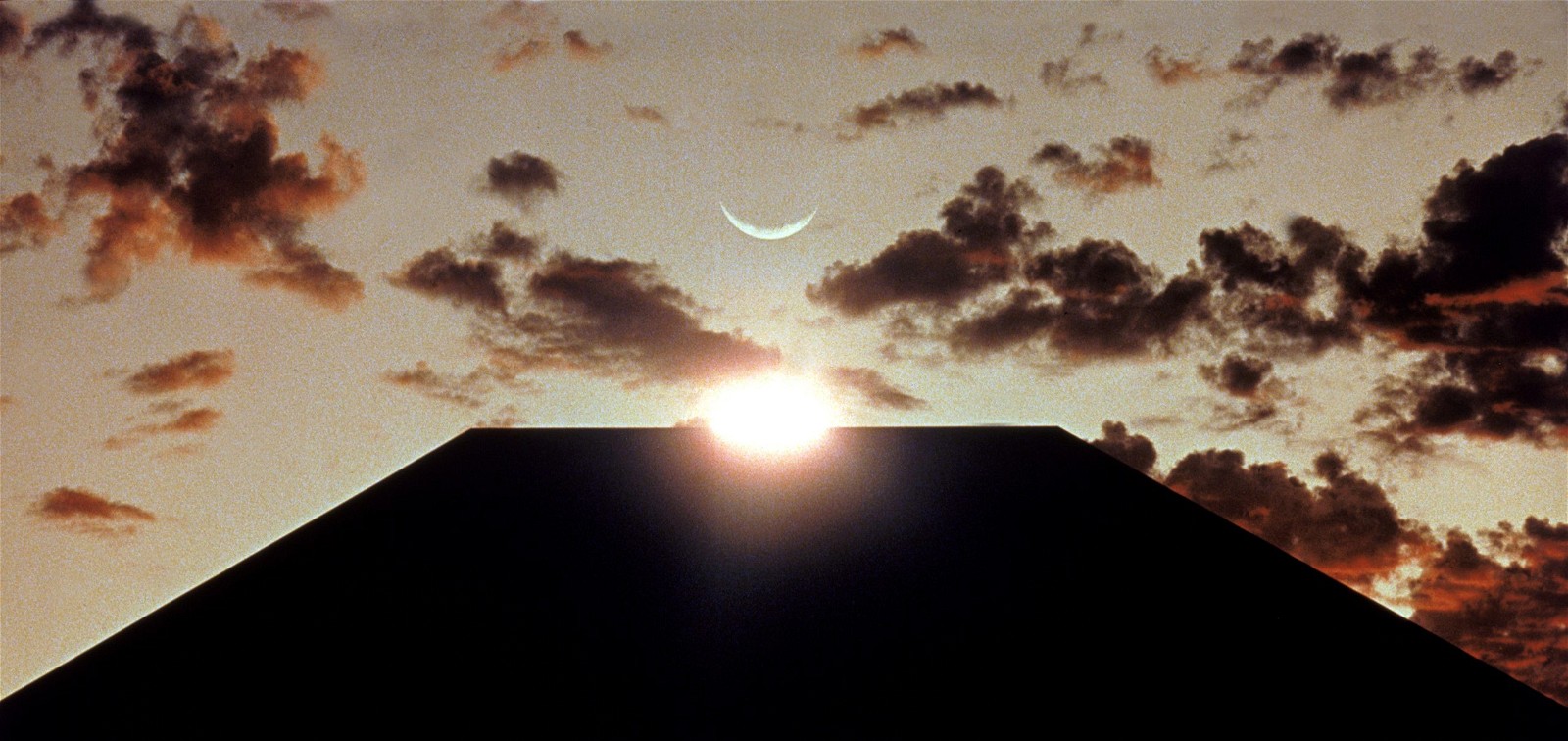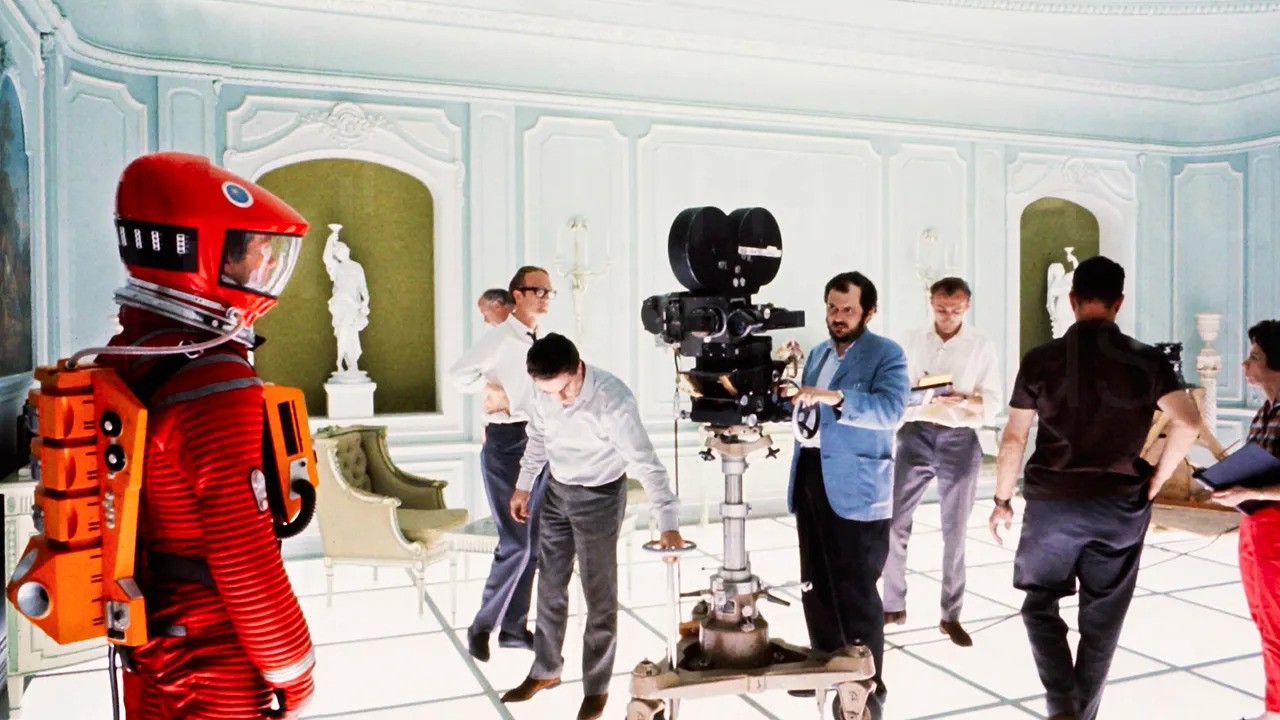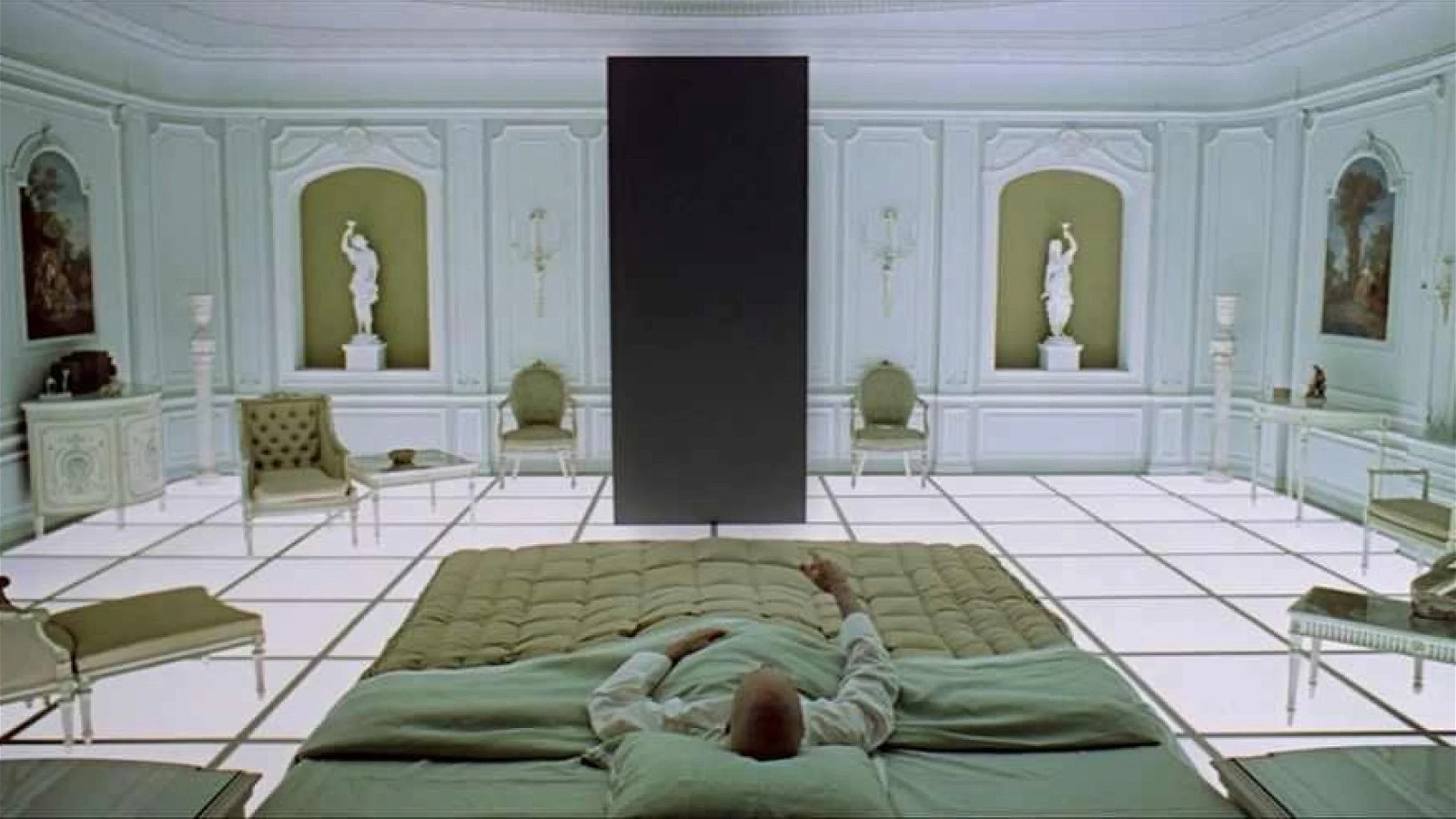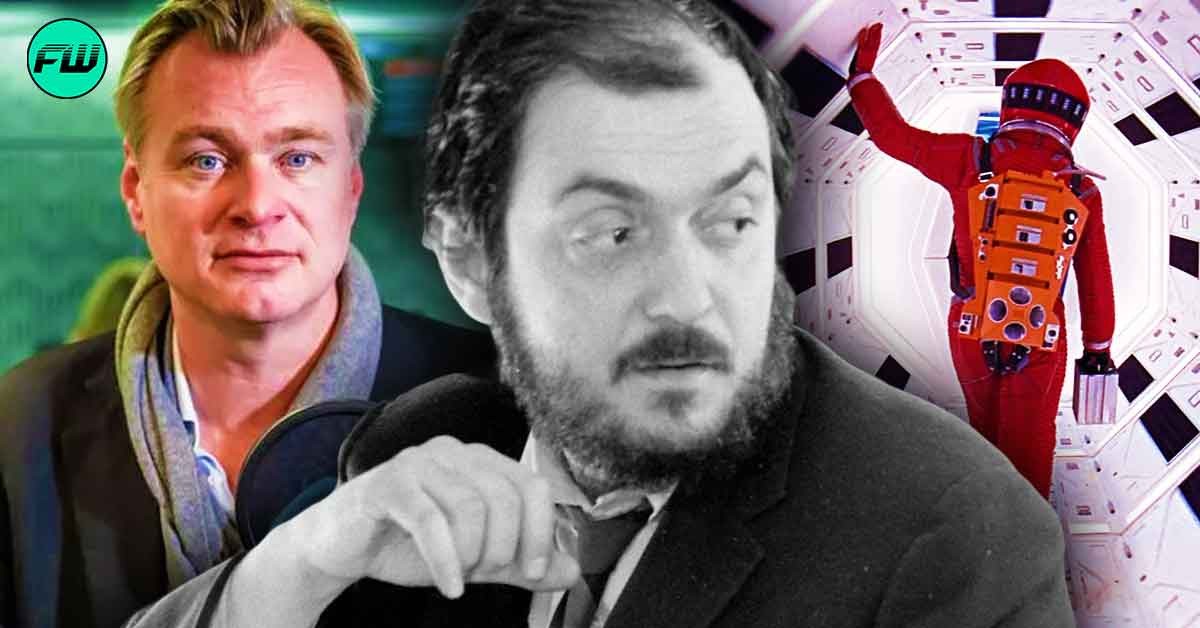Decades after the masterpiece that had left mankind reeling on the brink of existential chaos, Stanley Kubrick’s 2001: A Space Odyssey finally received a surprisingly cathartic response from the director himself as to what the ending meant. Since the advent of genre-bending cinema, underrated cult classics, and controversial films have always been plagued with a multitude of internet searches that seek to ask the same question – “What does the ending mean?”
It was only fair then that Kubrick’s 1968 classic would be a part of that exclusive club, considering it was one of the first films to be considered both a classic and a genre-bending work of art.

Stanley Kubrick’s Reluctance To Solve His Space Odyssey
In an era devoid of the world wide web that housed the brilliance of Stanley Kubrick, the luxury of finding the meaning of a movie lay in one’s own humanistic interpretation. Often, that interpretation simply wasn’t good enough. In the case of decoding Kubrick’s psyche, however, the search for meaning was beyond the common man’s reach or imagination. As such, the understanding that the audience held about 2001: A Space Odyssey for decades after the film’s premiere was divisive, inconclusive, and wildly irritating at best.
Stanley Kubrick, for one, refused to subject his magnum opus to being dissected by the limitations of the human mind. When asked, he would tamper down the public’s curiosity by saying:
“You’re free to speculate as you wish about the philosophical and allegorical meaning of the film—and such speculation is one indication that it has succeeded in gripping the audience at a deeper level—but I don’t want to spell out a verbal road map for ‘2001’ that every viewer will feel obligated to pursue.”

Also read: Movies You Hated As A Kid But Relate More To As Adults
The director, for all his faults and glory, did not deliver a definitive response to what it all meant when A Space Odyssey came to an end after its glorious 180-minute runtime. But, in an interview with filmmaker Jun’ichi Yao in 1980, Kubrick finally gave in and presented his theory as to what the ending of his 1968 film truly meant. And it was shocking enough to put even M. Night Shyamalan to shame.
Stanley Kubrick Has a Meaning Behind the Madness
Stanley Kubrick’s 1968 sci-fi epic and its mind-bogging saga received an even more surprising explanation for its ending, leaving the audience in an increased state of shock after hearing the director’s interpretation of it all. In a rare 1980 interview, the director revealed this via a telephone conversation with a fellow filmmaker Jun’ichi Yao and claimed:
“The idea was supposed to be that he is taken in by god-like entities, creatures of pure energy and intelligence with no shape or form and they put him in what I suppose you could describe as a human zoo to study him, and his whole life passes from that point on in that room and he has no sense of time, it just seems to happen as it does in the film.
When they get finished with him, as happens in so many myths of all cultures in the world, he is transformed into some kind of superbeing and sent back to Earth. It is the pattern of a great deal of mythology, that was what we were trying to suggest.”

Also read: Insanely Twisted Movies You Can Only Understand After Watching Them Thrice
With an estimated budget of $12 million, the film which got off to a pretty slow and unenthusiastic start at the box office, eventually found latent success, earning $66 million worldwide and a 92% rating on Rotten Tomatoes. 2001: A Space Odyssey remains, despite its classic status, one of the most divisive pieces because of its slow narrative pace that dissuades cinemagoers from indulging in a 3-hour journey of intellectual impossibilities.
Beyond that, however, the timeless classic has remained an enduring example of Stanley Kubrick’s genius and a predecessor to all his other works, including A Clockwork Orange, The Shining, Full Metal Jacket, and Eyes Wide Shut among others.
Source: Jun’ichi Yao Interview

